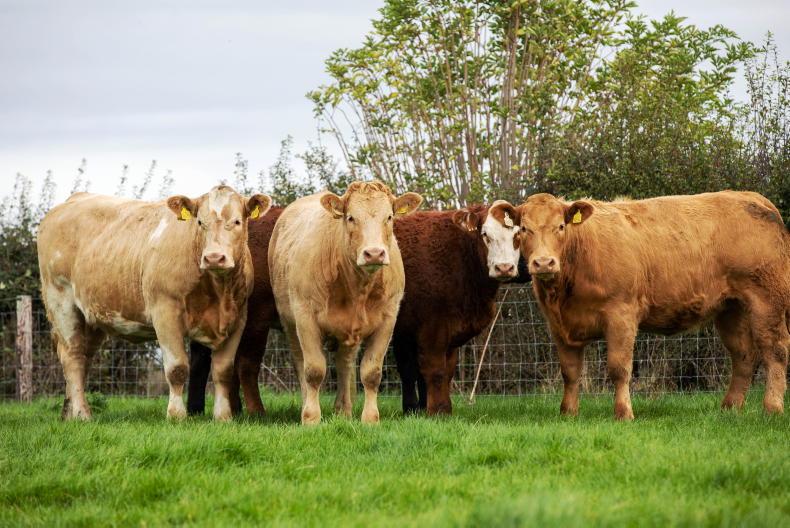The Department of Agriculture’s BDGP scheme and the ICBF’s associated €uro-Star index came in for an onslaught of condemnation from suckler farmers at the Galway event. ICBF technical director Andrew Cromie said all three were presented as the principal reason for the decline in cattle quality in the national herd.
“The reality is that this decline is directly attributable to the increased size of our dairy herd,” Cromie stated.
He said beef calves from the dairy herd traded through marts had increased by 31% to over 170,000 animals in 2018, while suckler-bred bulls were down 7%.
He said that the decline in carcase weights of steers slaughtered last year was directly related to an increase in dairy-bred animals being slaughtered. There was no reduction in slaughter weights or grades for suckler-bred animals.
The scheme has been very successful on many fronts
This week, ICBF chief executive Seán Coughlan said: “The transition of a focus of suckler breeding away from what had been primarily a terminal – weight and conformation – focus to a more balanced focus that also incorporates the cost of production traits like milk, fertility, calving ease, etc, and ultimately a more profitable suckler cow was a necessary, but significant change.” He said that change is “rarely easy”, but for the most part, pedigree and commercial breeders had embraced the change.
“The scheme has been very successful on many fronts. It was ahead of its time in terms of using breeding as a key element of Ireland’s national climate change strategy, and other European countries have looked to follow suit. The trends on the key carbon-related traits are trending in the right direction.”
However, Coughlan conceded: “It would also be naïve not to acknowledge that improvements could be made to a future scheme design. There are always valuable lessons to be learned on any journey.”
Read more
Not time to ‘slash and burn’ BDGP – Creed
Opinion: debate has to be based on facts
Beef Summit a line in the sand for the sector
The Department of Agriculture’s BDGP scheme and the ICBF’s associated €uro-Star index came in for an onslaught of condemnation from suckler farmers at the Galway event. ICBF technical director Andrew Cromie said all three were presented as the principal reason for the decline in cattle quality in the national herd.
“The reality is that this decline is directly attributable to the increased size of our dairy herd,” Cromie stated.
He said beef calves from the dairy herd traded through marts had increased by 31% to over 170,000 animals in 2018, while suckler-bred bulls were down 7%.
He said that the decline in carcase weights of steers slaughtered last year was directly related to an increase in dairy-bred animals being slaughtered. There was no reduction in slaughter weights or grades for suckler-bred animals.
The scheme has been very successful on many fronts
This week, ICBF chief executive Seán Coughlan said: “The transition of a focus of suckler breeding away from what had been primarily a terminal – weight and conformation – focus to a more balanced focus that also incorporates the cost of production traits like milk, fertility, calving ease, etc, and ultimately a more profitable suckler cow was a necessary, but significant change.” He said that change is “rarely easy”, but for the most part, pedigree and commercial breeders had embraced the change.
“The scheme has been very successful on many fronts. It was ahead of its time in terms of using breeding as a key element of Ireland’s national climate change strategy, and other European countries have looked to follow suit. The trends on the key carbon-related traits are trending in the right direction.”
However, Coughlan conceded: “It would also be naïve not to acknowledge that improvements could be made to a future scheme design. There are always valuable lessons to be learned on any journey.”
Read more
Not time to ‘slash and burn’ BDGP – Creed
Opinion: debate has to be based on facts
Beef Summit a line in the sand for the sector








SHARING OPTIONS